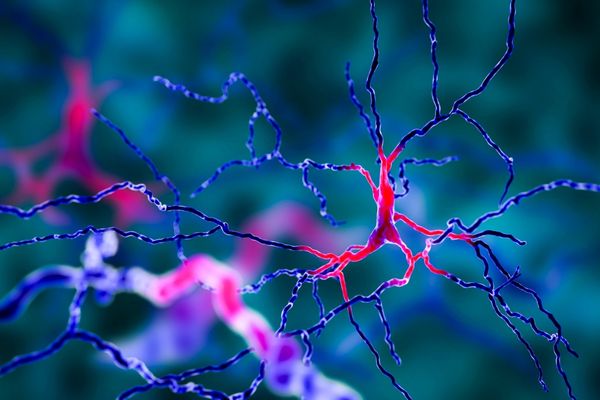The US is going through what has been deemed an “opioid epidemic,” caused partly by the increased availability of legal and illegal opioids. Another critical factor is that opioids are simply naturally addictive for various reasons. This article will explore the way opioids work and how it makes them ripe for abuse, provide statistics about opioid abuse in the US, and give you four specific reasons why opioids can be highly addictive.
1. Opioids are designed to take advantage of nervous system chemistry
Opioids work by attaching to the natural opioid (Mu) receptors in our brains. Our body creates natural opioids (endogenous opioids), including endorphins and dynorphins. When secreted, these endogenous opioids make us feel pleasure and pain relief.
What exogenous (not produced by our bodies) opioids like morphine do is generate an exaggerated response in our opioid receptors, leading to powerful pain relief effects and euphoria.
While this can be extremely useful in controlled medical settings where experts make informed decisions based on the patient’s needs, it can easily lead to addiction in people who misuse them without supervision.
2. Opioids can cause dependence very quickly
Dependence and addiction are complex issues caused by factors such as past drug abuse, genetics, and more. Some people may experience intense euphoria when taking opioids, even when used as prescribed by their doctors, while others may not.
Experiencing euphoria from medical opioid use may be a warning sign that someone is vulnerable to opioid addiction. The exact number of days of opioid use necessary to cause dependence varies individually. Still, it may be as early as five days for opioid-naive people.
Taking opioids for longer increases the probability of becoming addicted within one and three years.
3. Opioids relieve intense pain
Some people become addicted to opioids initially prescribed for chronic pain.
Patients may misuse prescription opioids by taking them in ways other than recommended by their doctors, such as taking them at higher frequencies or in larger quantities. They may also take someone else’s prescription opioids or use them to get high rather than for pain relief.
It’s also possible to become addicted to them when taking them as prescribed if they’re vulnerable to opioid or drug addiction.
4. Opioid medications are sometimes overprescribed
A considerable amount of opioid prescriptions are handed to patients in the US every year. In 2015, about 92 million individuals in the US used prescription opioids.
Millions of Americans suffer pain and are often prescribed opioids to treat it. Due to their abuse potential, prescription drugs are often misused, and pain patients may become dependent on them. Sometimes, patients continue to use prescription opioids indefinitely with no intention of stopping or gradually reducing doses.
Despite the increase in opioid prescriptions since the 90s, pain reported by Americans has not decreased. Furthermore, the amount of opioids in morphine milligram equivalents (MME) prescribed per person is around three times higher than in 1999. MME measures how many opioids are available in a given place at a given time.
Opioid Statistics to Understand
Opioid abuse has skyrocketed in the 21st century, and opioids are by far the drugs associated with the most overdose deaths in the US. The following are some statistics related to opioid abuse in the US:
- Around 3 million persons suffer from opioid addiction in the US.
- In 2015, almost 92 million persons used prescription opioid medications in the US.
- More than 106,000 persons died from drug-involved overdoses in 2021 in the US. Approximately 80,000 of those deaths involved opioids.
- Every year, almost 10 million people misuse opioids in the US. It’s estimated that 3.8% of American adults abuse opioids each year.
Opioid misuse is a severe public health issue in the US and continues to increase yearly. Informing yourself about the risks of opioid abuse is the first to avoid it.
Opioids can be helpful but also risky
Opioids can be beneficial in treating chronic pain under controlled medical settings, but their use is fundamentally risky due to their high potential for abuse and addiction.
If you or some you know misuses opioids, whether prescribed or illegal, seek help. Opioids get a firm hold of your nervous system and are nearly impossible to leave alone. Seek treatment from addiction professionals to have a better chance of recovering and laying the foundation for a sober rest of your life.
